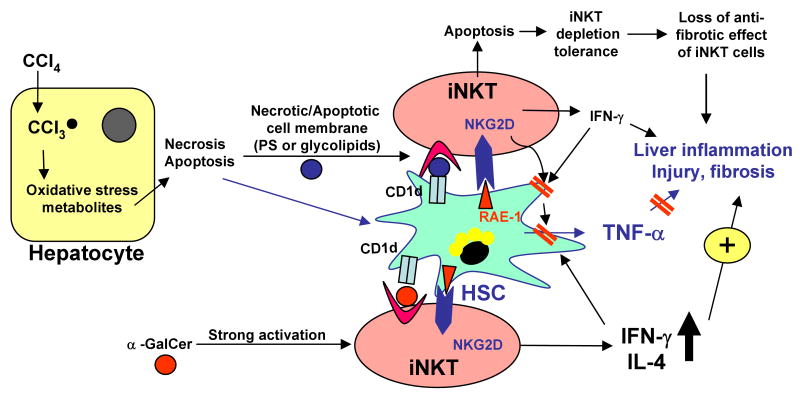Fig. 8. Complex roles of iNKT cells in acute and chronic liver injury, inflammation, and fibrosis induced by CCl4.
Acute injection of CCl4 induces hepatocyte necrosis/apoptosis. Damaged hepatocytes release lipid antigens, which can be presented by HSCs via CD1d to iNKT cells, resulting in natural activation of iNKT cells. Liver injury also induces HSC activation. Activated HSCs produce a variety of proinflammatory cytokines including TNF-α to participate in liver inflammation. Naturally activated iNKT cells may attenuate the proinflammatory effects of HSCs via inhibition of HSC activation or killing of HSCs. A single injection of α-GalCer induces strong iNKT cell activation and accelerates liver injury, inflammation, and fibrosis via an IFN-γ/STAT1-dependent mechanism. Chronic treatment with CCl4 leads to hepatic iNKT cell apoptosis and depletion. Thus, iNKT cells may play a role in inhibiting liver fibrosis at the early stage but not at the later stage. Repeated α-GalCer treatment leads to iNKT cell anergy and has little effect in chronic liver injury and fibrosis.

